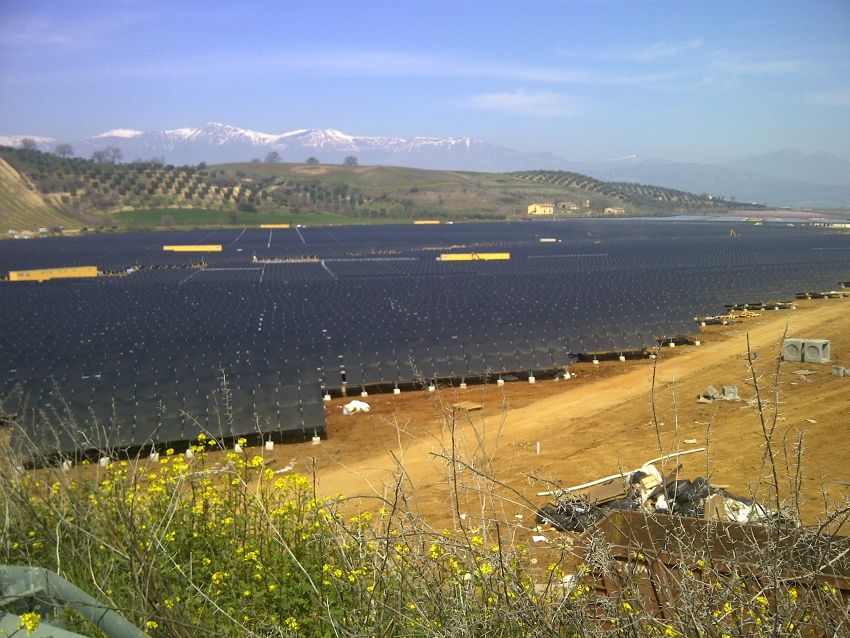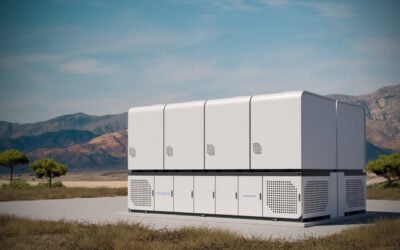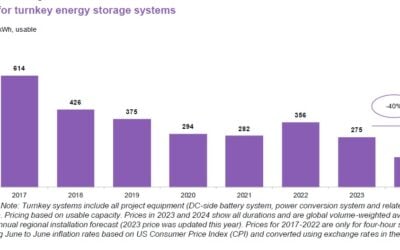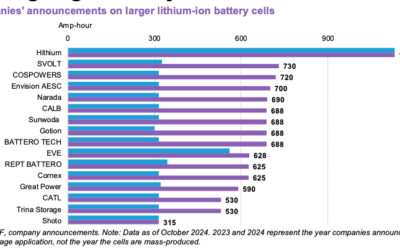
Utility Enel has been offering the reward of collaboration and testing agreements to “new technologies, architectures and control strategies” that maximise the value and effectiveness of energy storage.
In late February, Enel issued the challenge via its website. There is no closing date for submissions, with the company describing the challenge as “ALWAYS OPEN”. It has set some specific goals for system cost reductions and creating modularity and standardisation within system architectures.
Enjoy 12 months of exclusive analysis
- Regular insight and analysis of the industry’s biggest developments
- In-depth interviews with the industry’s leading figures
- Annual digital subscription to the PV Tech Power journal
- Discounts on Solar Media’s portfolio of events, in-person and virtual
Enel said it is looking for new ideas that lower energy storage costs and can improve the way its energy storage assets are “built, operated and maintained, order to maximise their profitability”. It appears to be a novel way for the utility to engage with a market in which it has already begun investing in and investigating new technologies.
This includes the trial of a four-hour duration flywheel in Hawaii, made by Amber Kinetics, recent large-scale battery projects executed in the US, the UK and Germany and perhaps most notably within the industry the acquisition of Demand Energy, a US project developer which specialises in software platforms for energy storage, thought to be the key to Enel’s interest.
Goals of the challenge
Enel is seeking ‘Next Gen Storage’ proposals for technologies and architectures that could potentially lower energy storage system costs to below US$100 per kWh. This appears a tough order, given that at present, lithium battery modules, thought to typically comprise around a third of total system costs, still come in at between US$200 to US$300 per kWh.
Tools to model and monitor simulated degradation of batteries over time and usage, to give better visibility into the effectiveness and lifetime of storage system components.
In terms of system design, Enel wants proposals to consider the likes of mobile battery energy storage system concepts i.e. systems that can easily be rolled out in large numbers. It is also seeking innovations in fire safety and fire suppression, power conversion systems (PCS) that can deal with “significant over-load capacity” while reducing costs, rapid maintenance systems, methods to reduce the physical footprint of energy storage systems and better storage system diagnostics.
Advanced battery storage system control technologies, enabling better battery lifetimes, co-ordinated control systems, adding plug-and-play capabilities, PCS control architectures to emulate inertia on the network, hybrid systems combining different storage technologies, long-term and seasonal storage technologies, new bidding and forecasting techniques for front-of-meter services, better end-of-life management and improvements in cathode and anode technologies are all called for by the Enel challenge.
Applicants must demonstrate what the business potential of their idea could mean for Enel, present cost-benefit analyses and technical feasibility, with proposals set for evaluation every three months. The winner(s) will receive technical support to test their ideas, including access to infrastructures and technology centres and will connect to Enel’s global Innovation Hubs around the world.
“If the test/PoC will be successful, Enel, directly or indirectly through a company of the Enel Group, might offer a concrete opportunity to scale-up the solution by adopting it through commercial agreements,” the company said in a statement.
Regulations for the competitive challenge are available here.






